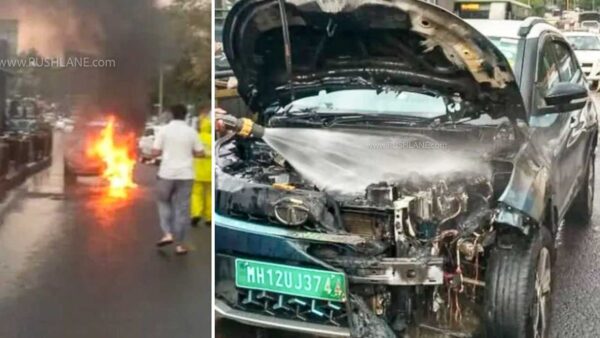Right to Repair vs. Manufacturer Control: A Debate in the Automotive Industry

A press statement regarding the Tata Nexon EV fire mentions unauthorised workshop, not once, but twice. It ends with an appeal to customers to use authorised Tata Motors workshops. In this instance, the car owner chose an unauthorised workshop over an authorised one for a fairly new car, all of 9 months since registration.
ACMA says the automotive aftermarket industry is rapidly growing in India and worldwide, with a value of $1.8 trillion globally and $10.1 billion in India alone. Independent repair shops/ third parties perform 70 percent of vehicle repairs for out of warranty vehicles globally, keeping 1.5 billion vehicles on the road.
The Pros and Cons of the Right to Repair Movement in the Auto Industry
The Right to Repair movement aims to give consumers the freedom to choose where to repair their equipment. This could mean one isn’t being restricted to manufacturer-approved repair shops. Advocates of the Right to Repair believe that it is essential for consumer freedom and choice. And promotes competition and encourages businesses to provide quality repairs at a reasonable price.
Opponents argue that it would hurt businesses that have trained repair workers and also could expose the public to security or safety hazards. Manufacturers have a right to protect the quality of their products and prevent safety issues that may arise from the use of uncertified parts. Authorized dealerships make money by servicing and repairing vehicles. It’s an income channel for them.
ACMA Director General: Right to Repair Legislation Could Unleash India’s Aftermarket
Manufacturers have created proprietary software and systems that only authorized dealerships have access to. This results in consumers paying charges determined by dealerships and reduced competition in the market. However, manufacturers have legitimate concerns regarding safety and intellectual property when it comes to repairs. They argue that allowing access to certain repair information and tools could compromise safety features and give competitors access to proprietary technology. The debate over the Right to Repair will likely continue as technology advances and new challenges arise in the automotive industry.
Earlier, Vinnie Mehta, Director General, ACMA said, “A legislation such as Right to Repair will unleash the aftermarket in India and help it evolve into an organized sector. Globally the size of the aftermarket is as large as the OEM supply, however in India it is just 18% of the overall USD 56.5 billion auto components market.”
Tata Motors Urges Customers to Use Authorised Workshops After Nexon EV Fire Incident
On April 16, 2023, a Tata Nexon EV caught fire. Two days later, on April 18, a detailed investigation was concluded, with experts determining the cause of the fire. It helps that the car wasn’t fully burnt. However, such prompt audits are the exception rather than the rule. On April 7, 2023, a Tata Nexon was engulfed in flames. On April 6, 2022, a Tata Punch caught fire in Guwahati, and the car was reduced to ashes within minutes. For Prabal Bordiya’s Tata Punch Tata Motors announced on April 4, that it would conduct a detailed investigation. No audit results were shared.
A Tata Harrier caught fire on March 24, and there was no manufacturer announcement. On March 16, a Tata Nexon XMA petrol caught fire, and was saved by quick-thinking SEIL security and fire control crews. The lack of consistent follow-up on these incidents prompts one to wonder what protocols govern press statements for some fire incidents but not all.

